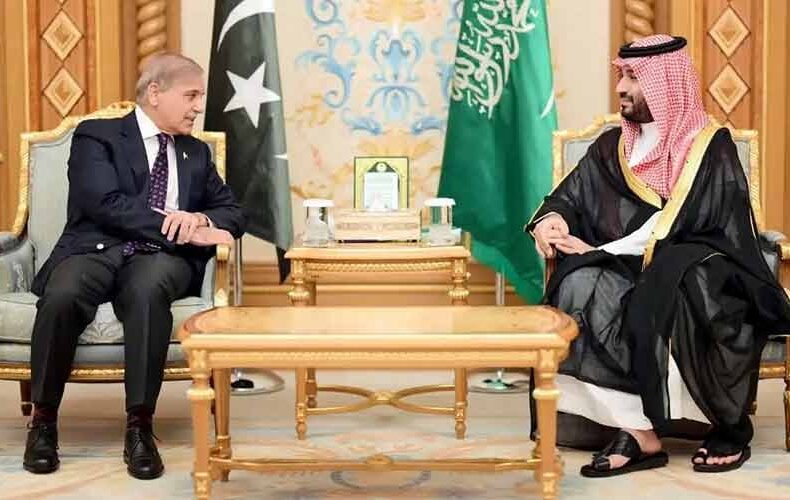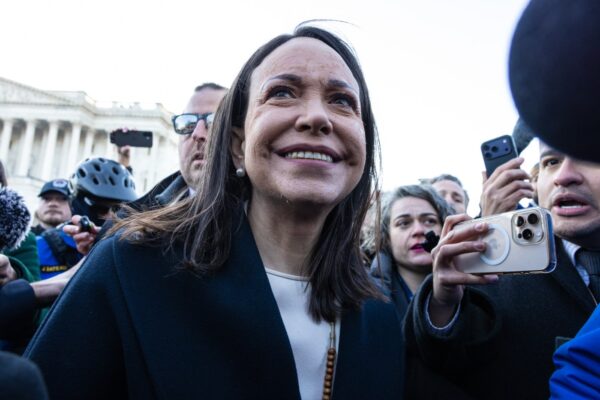
Pak-Saudi private-public co-operation
Pakistan and Saudi Arabia are at a new juncture in their long-standing relationship, built on common faith, mutual trust, and a history of solidarity. Saudi financial assistance has historically been a stabilizing influence for Pakistan during times of financial stress. However, as both nations face the evolving demands of the 21st century, the contours of their partnership appear poised to shift toward a new dimension.
Prime Minister Shahbaz Sharif’s recent visit to the Kingdom has signaled a transition from aid-driven support to investment-led collaboration. This approach moves beyond episodic relief towards sustainable economic cooperation. Public-private partnerships (PPP) can mark a new era of cooperation, uniting governments and private-sector investors to develop, finance, and manage joint projects of national and commercial importance.
### The Promise of PPPs for Pakistan and Saudi Arabia
Pakistan can reduce its fiscal burden through PPP by upgrading key sectors such as energy, infrastructure, and agriculture. These partnerships also complement Saudi Vision 2030, which aims to diversify investments and ensure energy and food security. In this context, PPPs can form the bedrock of a partnership-oriented future.
Currently, Pakistan is grappling with significant economic challenges. Its large debt, recurring balance of payment issues, and limited fiscal space have constrained the government’s ability to fund energy infrastructure and industrial ventures. Consequently, private capital, particularly in the form of foreign direct investment (FDI), has become a necessity.
Meanwhile, Saudi Arabia’s Vision 2030 is driving an ambitious economic transformation aimed at reducing dependency on oil revenues by channeling investments into renewable energy, technology, logistics, and agriculture. This initiative aligns well with Pakistan’s untapped strengths, including a youthful workforce, fertile land, and strategic geography. The PPP model offers a mechanism to bridge these complementary gaps—Pakistan can provide market potential and public support, while Saudi investors offer capital, expertise, and long-term commitment.
### Key Areas Ready for PPP Cooperation
**Energy and Renewables:**
Saudi firms such as ACWA Power have a strong international presence in solar and wind energy. Pakistan’s persistent power deficits and environmentally friendly policy framework present an ideal platform for PPPs in renewables. Saudi companies can invest in large-scale solar parks in Punjab or wind farms in Sindh, with governments providing land, guarantees, and regulatory support.
**Mining and Minerals:**
Pakistan hosts significant mineral reserves, including the Reko Diq copper and gold deposits, as well as large coal, chromite, and rare earth mineral deposits. Saudi Arabia, through its Public Investment Fund (PIF), has expressed strategic interest in these resources. A PPP framework can allow Pakistan to retain sovereign ownership while sharing revenues with Saudi partners.
**Agriculture and Food Security:**
PPP schemes could enable Saudi agricultural enterprises to lease land, introduce advanced farming technologies, and develop cold-chain logistics. This collaboration would boost productivity, create rural employment, and increase export revenues for Pakistan.
**Infrastructure and Transport:**
Infrastructure development is a pillar of economic growth. Pakistan has already welcomed Saudi investments in airline and airport joint ventures. A PPP concession model could enable Saudi private companies to operate terminals, logistics centers, and industrial estates through build-operate-transfer contracts.
**Technology Startups:**
Saudi venture capital is increasingly seeking exposure to high-growth tech ecosystems. Pakistan’s rapidly growing IT and freelancing economy could scale substantially with Saudi venture capital investments channeled through PPP-funded incubators and innovation parks. This collaboration offers diversification opportunities for both nations.
### Institutional Framework
Recognizing the importance of foreign investment, Pakistan has established the Special Investment Facilitation Council (SIFC), a one-window operation designed to expedite approvals and reduce bureaucratic delays. The council prioritizes investment from Gulf nations, especially Saudi Arabia.
Linking the SIFC framework with formal PPP legislation, in consultation with the Public Private Partnership Authority, will help Pakistan create a more investor-friendly and predictable environment.
Saudi Arabia’s Public Investment Fund, one of the world’s leading sovereign wealth funds, is actively pursuing international collaborations. Its entry into Pakistan through a PPP framework could provide long-term stability and encourage other investors to adopt a similar approach.
### Challenges Ahead
The success of PPPs will depend on addressing several structural challenges:
– **Regulation:** Uncertain taxation policies and frequent changes discourage long-term investments. Transparent and stable PPP legislation is essential.
– **Political Stability:** Political uncertainty undermines investor confidence. Institutional guarantees and sovereign support agreements can mitigate risks.
– **Capacity Gaps:** PPP projects require advanced contract management and monitoring capabilities. Pakistan’s public institutions need technical capacity-building.
– **Public Opinion:** PPPs must not be perceived as the sale of national assets. Highly transparent bidding and accountability measures are necessary to maintain public trust.
### A Win-Win Partnership
If designed thoughtfully, PPPs between Pakistan and Saudi Arabia can achieve three core objectives:
– **Economic Development:** Pakistan can develop energy, agriculture, and infrastructure projects at scale without overburdening the national budget by mobilizing foreign capital.
– **Strategic Security:** Saudi Arabia can secure food supplies, diversify its investment portfolio, and strengthen its alliance by investing in Pakistan.
– **Regional Stability:** Economic interdependence promotes regional stability and cooperation.
The PPP concept in Saudi-Pakistan relations is not merely theoretical. Saudi delegations visiting Islamabad have expressed tangible interest in multi-billion-dollar ventures. However, turning memoranda of understanding into actual investment hinges on whether PPP models can deliver clarity, fairness, and predictability.
### Moving Forward
It is imperative for Pakistani authorities to act proactively by drafting fair contracts, establishing effective dispute resolution mechanisms, and providing sovereign guarantees. Likewise, Saudi investors need to approach projects with a long-term developmental perspective rather than focusing solely on short-term profits.
The Pakistan-Saudi relationship is at a pivotal turning point. The conventional aid-based dynamic is evolving into a new, investment-driven partnership. Public-private partnerships offer a practical platform for this transition, addressing state needs, private sector interests, and citizens’ aspirations.
Through PPPs, Pakistan can close infrastructure gaps, create jobs, and stabilize its economy. For Saudi Arabia, these partnerships ensure secure access to strategic assets and a credible ally in its diversification efforts. Together, they can realize the promise of a common future founded not only on trust and friendship but also on sustainable prosperity.
https://www.thenews.com.pk/tns/detail/1346851-pak-saudi-private-public-co-operation
You may also like
更多推荐
You may be interested
Saudi Arabia & Pakistan Ink Defence Agreement Stating ‘Attack On Either Will Be Considered Attack On Both’
**Saudi Arabia and Pakistan Sign Strategic Mutual Defence Agreement** *Riyadh:*...
PM Modi conveys India is ready to support Nepal as protests eases
**Nepal’s Interim Prime Minister Sushila Karki Holds Telephonic Talk with...
US revokes visas of Indian executives over fentanyl smuggling link
**US Revokes Visas of Indian Executives Over Fentanyl Smuggling Link**...
 The New York Times
The New York Times
- Department of Homeland Security Shuts Down, Though Essential Work Continues 2026 年 2 月 14 日 Madeleine Ngo
- Casey Wasserman Will Sell Entertainment Agency Amid Epstein Files Fallout 2026 年 2 月 14 日 Shawn Hubler, Ben Sisario and Emmanuel Morgan
- New Research Absolves the Woman Blamed for a Dynasty’s Ruin 2026 年 2 月 14 日 Andrew Higgins
- How China Built a Chip Industry, and Why It’s Still Not Enough 2026 年 2 月 14 日 Meaghan Tobin
- ’The Interview’: Gisèle Pelicot Shares Her Story 2026 年 2 月 14 日 Lulu Garcia-Navarro
- Ramping Up Election Attacks, Trump Does Not Let Reality Get in His Way 2026 年 2 月 14 日 Katie Rogers
- Consultants Offered Epstein Access to Top N.Y. Democrats if He Donated 2026 年 2 月 14 日 Jay Root and Bianca Pallaro
- ICE Agents Menaced Minnesota Protesters at Their Homes, Filings Say 2026 年 2 月 14 日 Jonah E. Bromwich
- Trump Administration Tells Judge It Will Release Gateway Funding 2026 年 2 月 13 日 Patrick McGeehan
- Florida Couple Arrested After Pickleball Match Turns Into a Brawl 2026 年 2 月 13 日 Neil Vigdor



Leave a Reply